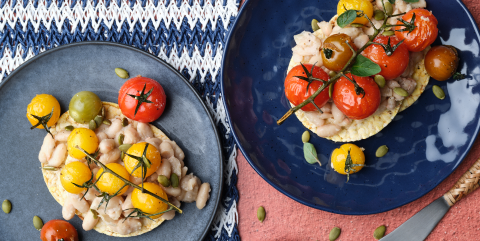Resistant Starch May Help Reduce the Risk of Hereditary Cancer

The need to include adequate fiber in your diet each day for optimal health and wellbeing is becoming well known. There are many different types of fiber and one of these is called resistant starch. Resistant starch is a type of carbohydrate which resists digestion in your small intestine. It is a fuel source or prebiotic fiber for the health promoting microbes which live in your large intestine. It is beneficial to your health for many reasons to include resistant starch as a component to your daily diet.
By feeding the health promoting microbes in your gut with the fuel they need to survive they provide your body with many health benefits. This includes an improved ability to metabolize foods, supports a healthy body weight, promotes organ health such as brain and heart health, reduces your risk of certain chronic diseases like types two diabetes, and promote an optimal immune system functioning. These are just a few of the many ways a healthy gut microbiome can support your health and wellbeing.
An additional benefit to add to these reasons to include enough resistant starch in your diet is its potential role to reduce the risk of developing hereditary cancer. A new study of 937 participants with Lynch Syndrome were recruited. Lynch Syndrome is a hereditary condition which puts you at risk of many types of cancers. This includes a great risk of developing colorectal cancer, stomach cancer, ovarian cancer, small intestine cancer, bile duct cancer, urinary tract cancer, brain cancer, skin cancer, and endometrium cancer.
This study was a strong study design which was randomized and double blinded. Participants were randomly assigned to receive 30g of resistant starch daily or a placebo taken daily for up to 4 years. After a 20 year follow up there was no difference in the risk of developing colorectal cancer between the two groups. There was a significant difference in the number of participants diagnosed with other types of cancers. Especially in the upper gastrointestinal (GI) tract. There were 21 participants who were diagnosed with upper GI cancers in the placebo group compared to only 5 diagnosed with upper GI cancers in the group which received the resistant starch.
This is exciting new research on the potential health benefits of including enough resistant starch in your diet. As a general guideline it is recommended to include 15-20g of resistant starch each day. All starchy foods are a source of resistant starch. Foods which are good sources of resistant starch include:
- Unripened bananas
- Onions
- Green and black tea
- Cooked and cooled wholegrain pasta, potatoes, and rice.
- Wholegrains, or wholegrain containing foods like Corn Thins slices
- Legumes like chickpeas, lentils, and red kidney beans.
- Starchy vegetables like pumpkins, potatoes, and sweet potatoes.
- Nuts
Take home message: There are many benefits to eating a diet which provides your body with adequate dietary fiber. An additional benefit of consuming enough resistant starch is its ability to potentially reduce the risk of hereditary cancer from Lynch Syndrome. While there is no one single food which can cause or prevent cancer it seems that including adequate resistant starch in your diet each day is a positive lifestyle habit to include for those who have Lynch Syndrome.
References:
- Mathers JC, Elliott F, Macrae F, Mecklin JP, Möslein G, McRonald FE, Bertario L, Evans DG, Gerdes AM, Ho JWC, Lindblom A, Morrison PJ, Rashbass J, Ramesar RS, Seppälä TT, Thomas HJW, Sheth HJ, Pylvänäinen K, Reed L, Borthwick GM, Bishop DT, Burn J. Cancer Prevention with Resistant Starch in Lynch Syndrome Patients in the CAPP2-Randomized Placebo Controlled Trial: Planned 10-Year Follow-up. Cancer Prev Res (Phila). 2022 Jul 25:OF1-OF12. doi: 10.1158/1940-6207.CAPR-22-0044. Epub ahead of print. PMID: 35878732.
- Resistant Starch Facts. CSIRO. https://www.csiro.au/en/research/health-medical/nutrition/resistant-starch